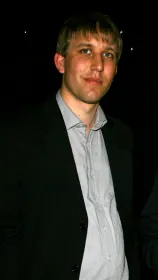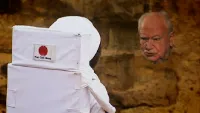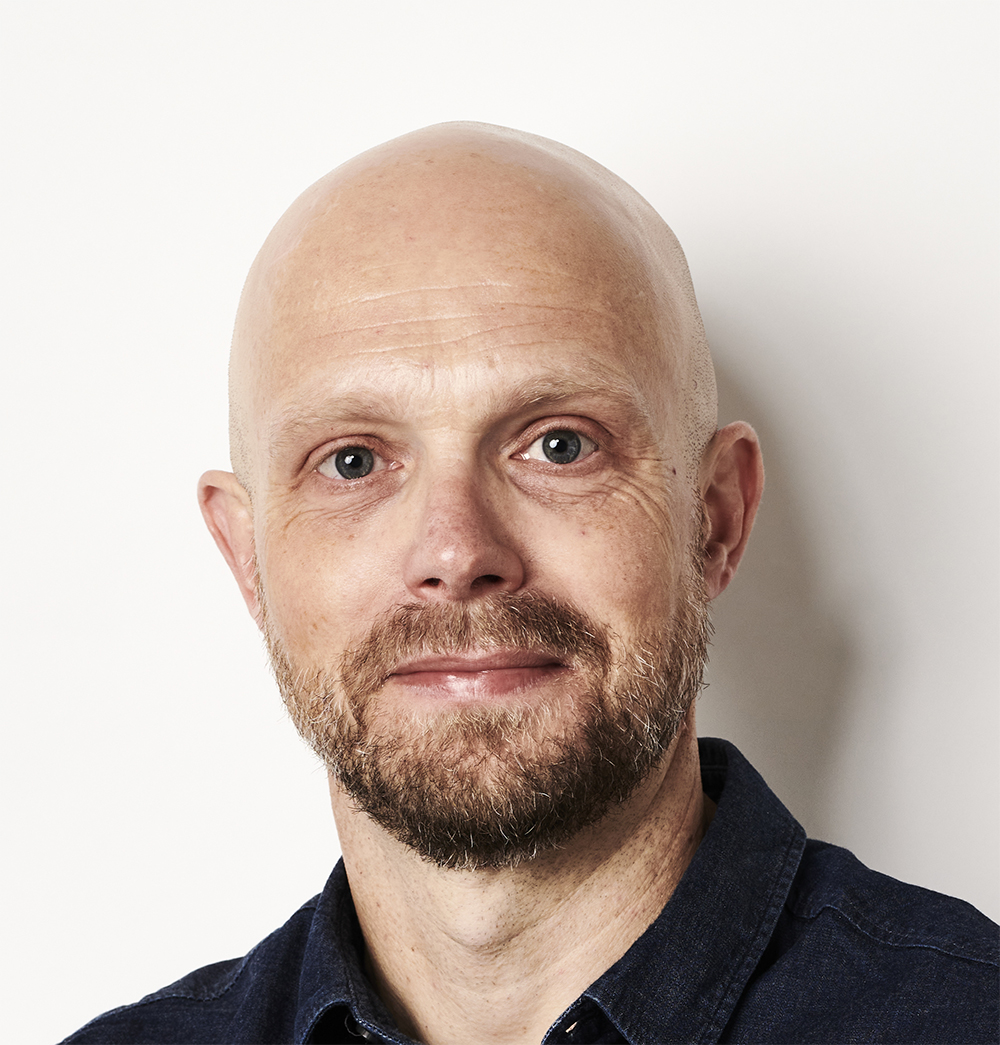In the week running up to the 700th episode of The Sky at Night airing on 6 March 2011, we’re releasing some of our interviews with the show’s producers and co-presenters, which reveal fascinating behind-the-scenes insights into what it’s like to work on one of the longest-running shows in TV history. Here’s our recent interview with current co-presenter Chris Lintott.

What has it been like working with Patrick over the last 10 years?
Patrick knows everything and is extremely good at keeping people on their toes – he always asks difficult questions.
I remember one early programme we did was about a solar eclipse in Africa. We couldn’t go, so we were shown footage of it and Patrick and I were filmed watching it for the first time to catch our reactions.
As we watched the video of the eclipse, lots of animals appeared in shot too and Patrick kept up a wonderful commentary.
“As the Moon crosses the face of the Sun, the giraffes go down to the waterhole, and the hippopotamus decides it’s time for bed,” he would say.
Then he said, “Chris, the elephant’s not perturbed is it?” And dived down to read his script. I remember thinking, “Okay, how do I reply to that?”
That’s how I always feel working with Patrick. You never know what he’s going to say next and you have to be prepared for pretty much any question!
Do you have a favourite episode that you’ve worked on?
That’s a bit like asking to choose between your children, but I think the interview I did with Eugene Cernan at Mission Control in Houston was pretty special.
Listening to him talk about what it was like to be in the early days of the Apollo programme and describe what it was like to be on the Moon was very special.
I also had so much fun doing the two 50th anniversary programmes, both the party and the time travel episode.
At the party there was a wonderful moment when I heard two people talking about their observations of Saturn. After a while one of them said, “So, what do you observe with?”
To which the other replied, “Well, I’ve got a Celestron 14-inch telescope. What do you use?” “Oh, Cassini,” came the answer!
For the time travel episode we went back 50 years to the first episode, with Jon Culshaw impersonating a young Patrick, and then forward 50 years to this absurd and amusing scenario.

I found myself in a quarry just outside Stevenage, dressed in a badly fitting space suit, pretending to talk to Patrick as a disembodied head floating next to me (see picture, right). We discovered the remains of the Beagle, of course, which had crashed on Mars. What fun!
What’s the most memorable mission that you’ve covered on The Sky at Night?
My favourite has been the Mars rovers, Spirit and Opportunity. I’ve been lucky enough to talk to the mission’s prinicipal investigator, Steve Squyres, for the show.
He’s a great speaker with a wonderful way with words when it comes to astronomy.
I also have a soft spot for Planck and Herschel, because I got to go to the launch in French Guiana, which was absolutely wonderful.
To stand among the scientists, some of whom had spent 10 to 20 years of their lives building the space telescopes, and then to watch it go up and see the relief and joy on their faces at the successful launch was excellent.
Do you have a favourite location that you filmed in?
The most spectacular place was the Chajnantor plateau in Chile, where they’re building the ALMA telescope. It’s about 5.5km above sea level, high enough that they were continuously monitoring our blood pressure to make sure that we weren’t about to succumb to a lack of oxygen.
It was like being on the surface of another planet. There was a volcano behind us billowing smoke, and lava fields that looked like the surface of Io with incredible colours. And in the middle of it all, a beautiful telescope.
Do you think The Sky at Night will celebrate another 700 episodes?
The programme is part of everyone’s lives – We know and love the amateur astronomers who watch the show every month. I’m always fascinated by the number of people who catch a programme every couple of month, too.
Wouldn’t it be great if you turned on the television every night and there was a Sky at Night on? It would kill us making them but I think it’s got that hold on people and they expect to find it there. Here’s to the next 700!
